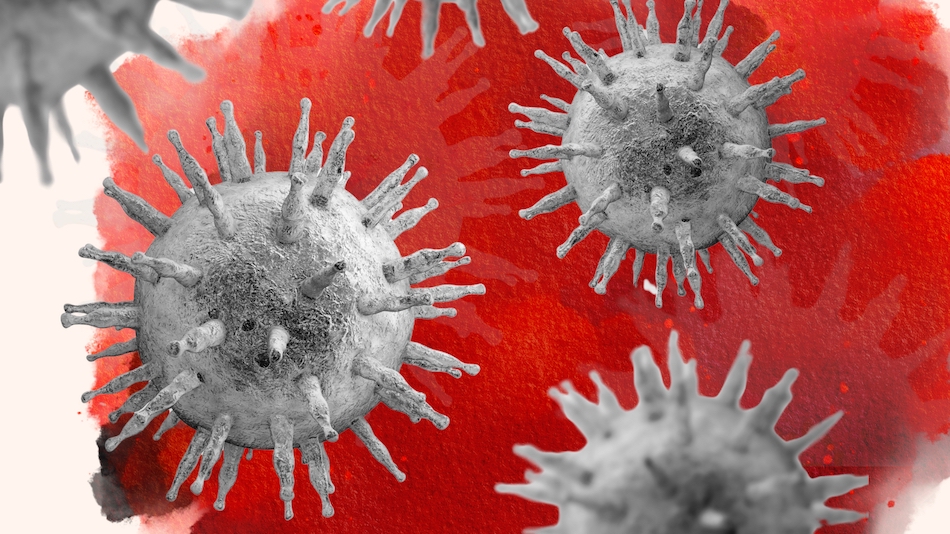It’s now been more than a year since the first COVID-19 deaths in the United States, and we’re taking stock of how far immune system research has come. La Jolla Institute for Immunology’s (LJI) latest “Live from the Lab” webinar highlighted what we’ve learned since February 2020. [Click to watch the full webinar].
Five key takeaways:
5. COVID-19 is historic—in more ways than one
No one alive today can remember a global pandemic on this scale, but aspects of COVID-19 are eerily familiar to recent disease outbreaks. Ebola virus outbreaks have separated families from sick loved ones. The HIV/AIDS pandemic struck marginalized groups the hardest.
LJI Executive Vice President and Chief Operating Officer Steve Wilson, Ph.D., put the current pandemic in context. “The constant and consistent spread of infectious disease has traveled along with humans as we’ve transited the world,” said Wilson.
As devastating as COVID-19 is, this certainly is the first time in history that scientists have had a chance to build a vaccine as a novel pathogen began its global march. “What has really changed is our ability to do something about—to produce effective vaccines in the first wave of the pandemic,” said Wilson. [Learn more: “How Pandemics End”]
4. LJI was in a unique position to study COVID-19
“We found ourselves quite well ‘plugged in’ with a lot of experience already, not only with immune responses—T cells and antibody responses—but also specifically with coronaviruses,” said Eric Zwisler, chair of the LJI Board of Directors. “To top it off, we also had experience in vaccine development and the ins and out of vaccine efficacy and design.”
“In particular, eight researchers who had spent years developing platforms, techniques and expertise moved very quickly to study COVID-19,” added LJI President Mitchell Kronenberg, Ph.D
These scientists were the leaders of LJI’s Coronavirus Task Force. Their work has shed light on the body’s ability to fight COVID-19, the potential of antibody therapies to treat infections and more. [Learn more: “The Coronavirus Immunotherapy Consortium (CoVIC)]
3. “Long COVID” should not have been a surprise
As the pandemic spread, more people reported fatigue, heart problems and other lasting COVID-19 symptoms. Researchers found that these COVID-19 “long haulers” were twice as likely to be women, and much more likely to be COVID-19 patients who had been hospitalized during their initial illness.
Scientists and doctors are working to help patients with long COVID. Interestingly, this isn’t the first time patients have shown lingering symptoms from an acute viral infection. Researchers have a word for these symptoms: sequelae. “This has been reported in SARS, MERS and other coronaviruses,” says Wilson. “Even in old reports of the 1889 pandemic that, like today’s COVID-19, mostly killed people who were older and was most likely a coronavirus.”
2. The public cares about immunology
Kronenberg highlighted a key moment of 2020: in August, NIAID Director Anthony Fauci, M.D., held up an LJI-led Cell study during Congressional testimony. He called the research on T cell responses to SARS-CoV-2, “work we really need to pursue” to stop the pandemic
Suddenly, this manuscript was headline news and earned unprecedented social media attention.
For the LJI scientists who authored the manuscript, this work was just one key step in unraveling the immune system’s response to SARS-CoV-2. But they understood that the world was watching them, empowered by a new grasp of what immunologists can accomplish.
1. This work isn’t slowing down
“The way out of this is to safely train the immune system,” says Wilson. He strongly agreed with the CDC recommendations to get COVID-19 vaccines. “We need to get to herd immunity SAFELY, the way to do that is through vaccination,” he said.
Research into antibody therapies continues, and LJI scientists are also studying immune responses to emerging COVID-19 variants. Wilson highlighted two tools that will aid in LJI research: the development of SARS-CoV-2 infection mouse models and the construction of the LJI Biosafety Level 3 Lab, which allows scientists to work safely with infectious pathogens. This infrastructure will help LJI address future infectious diseases, especially in cases where we’ll again have to develop effective countermeasures in a race against time.
“We need to look forward and be at the ready—it’s going to be needed.” says Wilson.
Learn more about LJI’s COVID-19 research
Watch the full webinar:



